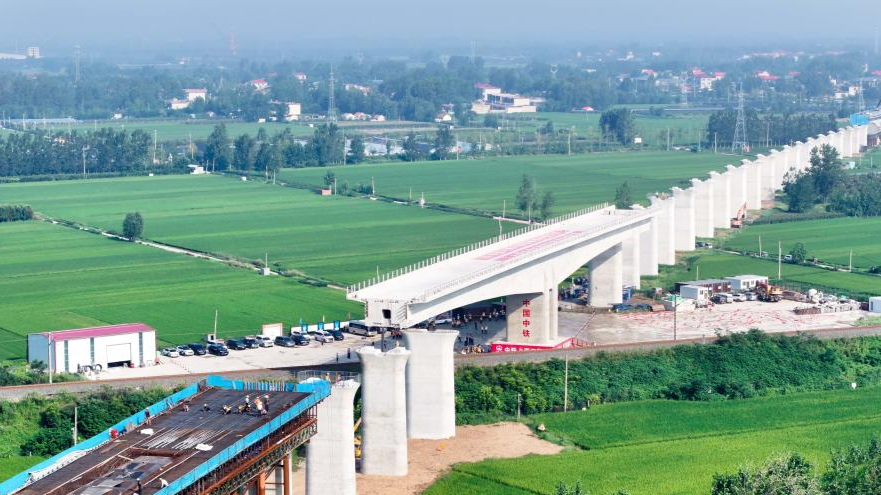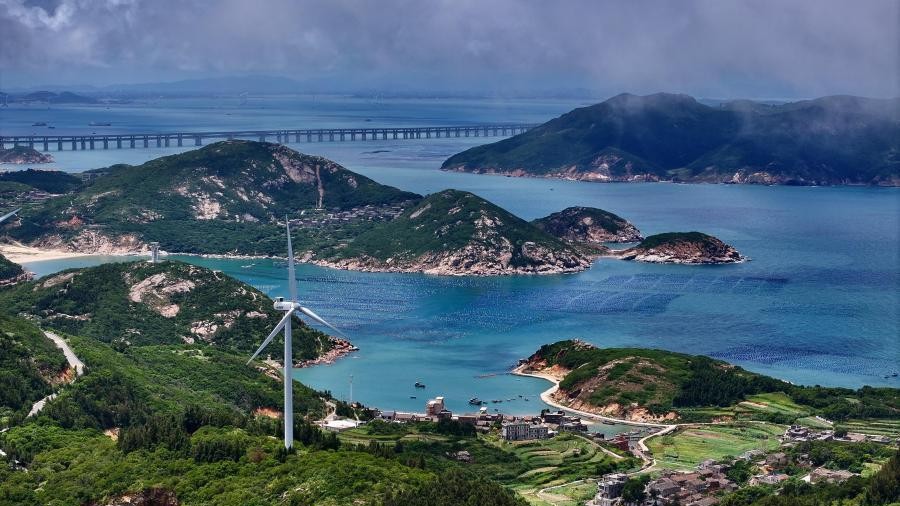Indian, US media outlets closely follow Xi-Modi meeting
The bilateral meeting between Chinese President Xi Jinping and Indian Prime Minister Narendra Modi in Tianjin on Sunday gained significant attention from international media.
Xi and Modi met in Tianjin on Sunday ahead of a summit of the Shanghai Cooperation Organization (SCO), agreeing that China and India are partners, not rivals, according to the Xinhua News Agency.
Xi told Modi that China and India are each other's development opportunities rather than threats, Xinhua said. As long as the two countries keep to this overarching direction, specific matters in the bilateral relations will fall into place and there will be steady and sustained progress in bilateral ties, Xi said, per Xinhua.
Given the great uncertainties in the world economy, it is vital for India and China to strengthen cooperation as important economies of the world, Modi said, according to Xinhua.
India is prepared to seek a fair, reasonable and mutually acceptable settlement of the boundary question with China, he said, Xinhua reported.
This is Modi's first visit to China since 2018, the Economic Times reported.
This meeting followed their face-to-face exchange in Kazan last year and sustained the momentum generated through a series of engagement recently, and it is particularly noteworthy against the backdrop of a period of decline in China-India relations in recent years, some Chinese experts said.
Major Indian media outlets attached attention to this highly anticipated meeting between leaders of the two major neighboring countries. The Hindu said "the two leaders held wide-ranging talks earlier in the day with a focus on rebuilding the bilateral relations."
India Today used "pragmatic rapprochement" when reporting the meeting.
Some Indian media also attached the importance to the boundary question between India and China.
The two Asian neighbors should combine their strength to maintain peace and tranquility in their border regions, and should not allow the boundary question to define the overall China-India relations, Xi said, per Xinhua.
The New Indian Express said Modi also conveyed to the Chinese leader that peace and tranquility along the India-China border act as an "insurance policy" for maintaining healthy bilateral relations.
The Indian media Economic Times, citing Indian Foreign Secretary Vikram Misri, reported that the talks between the two leaders mentioned the challenge of cross-border terrorism and pitched for extending support to each other to combat it as both India and China have been impacted by the menace.
"It was an element of consensus that stable and amicable India-China relationship can benefit 2.8 billion people of the two countries," he said, according to Economic Times.
Some US media outlets also closely followed the Xi-Modi meeting, however, from a perspective of competition with China. CNN said "the positive signals are sure to be closely watched in Washington, where tensions with New Delhi threaten to derail what had been years of efforts from US diplomats to deepen ties with the country as a key counterweight to a rising and increasingly assertive China - a set of circumstances that makes the latest meeting all the more important and timely."
The Time said "Modi's move toward China might be seen as a strategic blow to the US, but the summit is likely aimed at boosting China's position as a global leader and countering Western influence in global affairs."
While the US is engaged in trade battles with both allies and rivals, China is promoting economic cooperation with emerging economies like Turkey, Malaysia and Pakistan, according to the US media outlet.
The AP News said Modi made that message clear Sunday, saying that "India and China both pursue strategic autonomy, and their relations should not be seen through a third country lens," citing the Indian foreign ministry.
Ease on border issue also attracted attention from US media outlet. Sunday's meeting between Xi and Modi followed a rare diplomatic breakthrough in August, when New Delhi and Beijing agreed to explore demarcating their disputed border — a key step toward resolving decades-old territorial tensions, Bloomberg News reported. The move signaled a shift toward dialog after years of military standoffs and strained relations.
For the long-term development of the China-India relations, three key challenges including rebuilding strategic mutual trust, properly handling the boundary question and restoring cooperation need to be addressed, Qian Feng, director of the research department at the National Strategy Institute at Tsinghua University, told the Global Times on Monday.
"On the boundary question, while the situation has been generally stable, it is necessary to push for substantive progress to reduce opportunities for external forces to sow discord," he said.
The meeting between the two leaders was fruitful, which reached new important consensus on the development of bilateral relations, Cai Qi, a member of the Standing Committee of the Political Bureau of the CPC Central Committee and a member of the Secretariat of the CPC Central Committee, said on Sunday, per Xinhua.
China is willing to work with India to enhance friendly exchanges and mutually beneficial cooperation, properly manage and resolve differences, and promote the further improvement and development of China-India relations, Cai said.
Photos
Related Stories
Copyright © 2025 People's Daily Online. All Rights Reserved.









